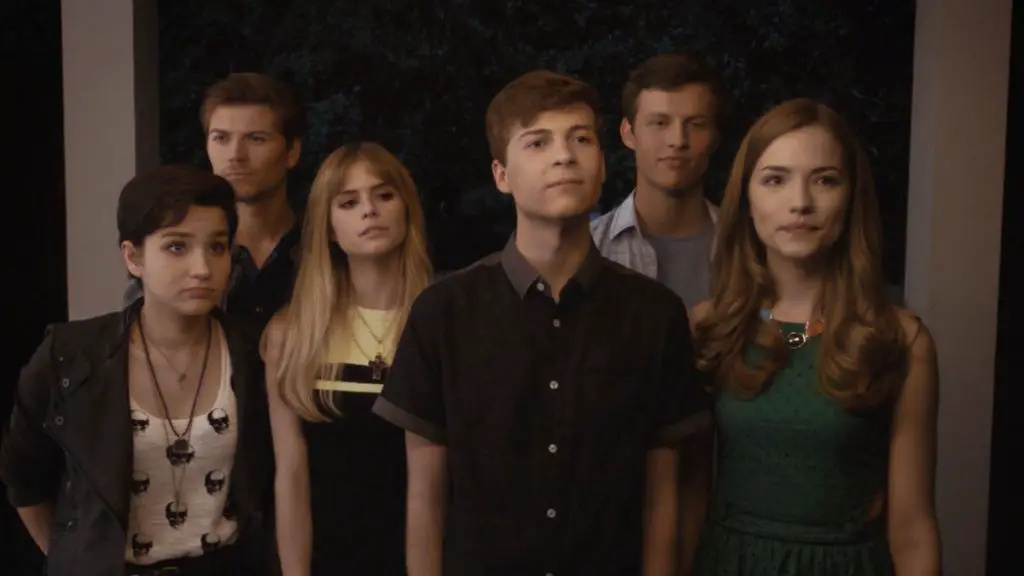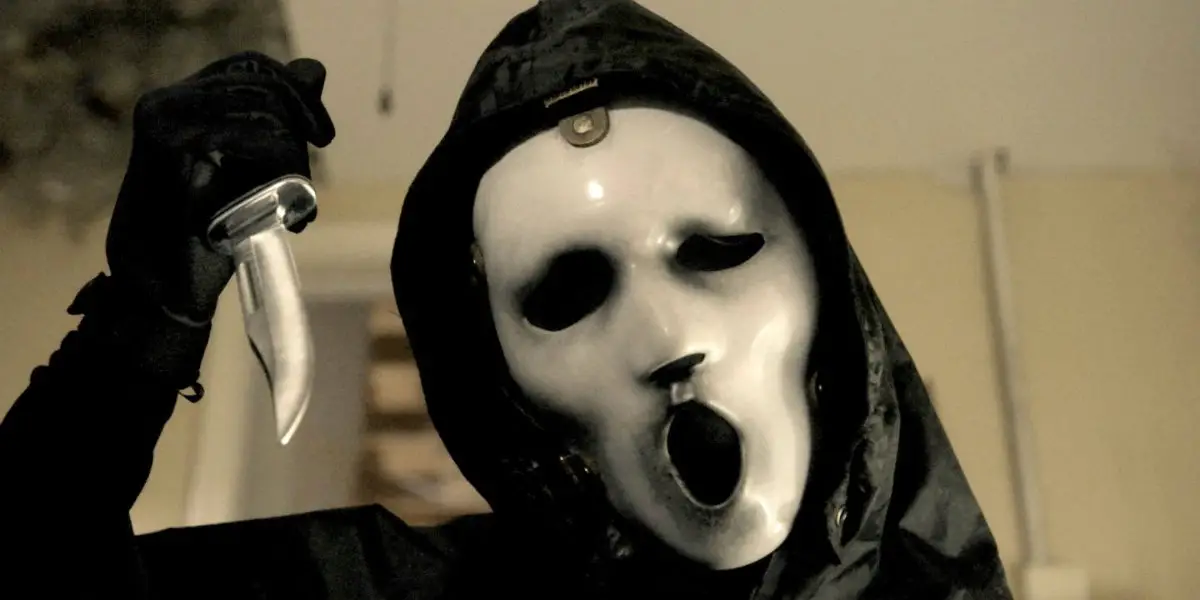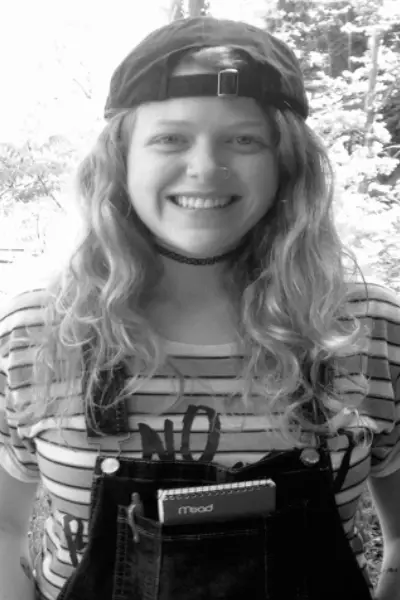Doing Horror Differently
By rejecting even the most engrained tropes of the horror movie genre, the show opens itself up to refreshing new opportunities.
By Bri Griffith, Carlow University
Horror movies are more predictable than they are scary.
Chasing, haunting and killing have all been done before, and the villain’s weapons are equally as unoriginal as any film’s setting—dark, wooded and abandoned areas only. Bodies sink to the bottom of a crystal clear lake, teenagers get drunk and (of course) their cell phones don’t work, because why the hell would they?

Still, I’m a horror film fanatic, and was excited to hear about MTV’s “Scream: The TV Series.” Based on the famous film franchise, “Scream: The TV Series” is a fresh take on a classic, still focusing on a ghost-faced killer—Halloween costumes have not been the same since. What “Scream” does that other horror films/shows don’t do is challenge the old and unoriginal.
“Scream” is surprisingly enjoyable to watch—the show has me hooked, and each week I’m waiting to watch and gather evidence. With only the second season wrapping up this summer, I don’t see “Scream” coming to a screeching halt anytime soon.
Here’s what “Scream” does that other horror films/shows fail to do.
Character Dialogue is Ironic
Don’t you love when the movie’s title is mentioned by somebody in the movie, and you’re like, “I see what you did there”? “Scream” accomplishes this with characters who openly challenge typical horror film scenarios.
Noah Foster, a main character, is known for his wit, charm and sarcasm. He’s said before, “You can’t do a slasher TV series.” Ironic, considering he’s a part of a slasher TV series. “Once the first body is found, it’s only a matter of time before the bloodbath commences,” is another one of Noah’s famous quotes. His observation reminds me of the domino effect: Once this person dies, I’m sure this person will go next, etc.
As a viewer, you shouldn’t be predicting each death, expecting certain people to go before others. Instead of producing content viewers are familiar with, “Scream” has characters calling out the lack of originality plaguing most horror films. ”You go to the movies, it ends, the lights come up, and then everybody goes home feeling better,” Noah says, again relating to viewers on a human level. Horror movie lovers know to fear the dark, not to follow the noises they hear at night and to keep their doors locked because it’s been done over and over again.
No Character Avoids Death
Similar to AMC’s “The Walking Dead,” no character in “Scream” is immune to blunt force trauma. In real life, there are no super powers, no “I’m going to survive because I’m the main character” type bullshit. Frustratingly so, the core group of characters in (most) horror films fall into a cliché “death order,” and viewers can usually guess who’s going to die when and how. What’s interesting and different about that?

With “Scream,” there is no “I’m safer than you.” Sure, killing certain characters may seriously fuck up the plot, but “Scream” does such a good job of incorporating new people into the mix, as a viewer there’s no need to attach yourselves to one person you know won’t die—eventually everyone will die. The cast has changed drastically from the first season to the second, and I’m sure the show will continue to throw curve balls.
In almost every episode, Noah refers to Emma Duval, a main character, as “survivor girl.” Noah’s comparing Emma to the girl in every horror film who “won’t die,” but will live to tell the story of what happened to her and her friends. I’m convinced Emma will die, judging by their ruthlessness with other characters like Jake Fitzgerald, who was murdered unexpectedly in the very beginning of the second season, although his blossoming relationship with Brooke Maddox was sure to keep viewers entertained. The idea of anybody dying at anytime promotes anxiety, intensity and suspense, all of which make for a successful slasher series.
Mental Health Issues Don’t Go Unnoticed
More often than not, a scary movie will end in either a kissing scene/loving embrace between survivors, or a “3 months later,” when everything is fine again, and the victims have already worked on picking up their lives and moving on. What falls off the radar is mental health awareness, including anxiety, depression, trauma and PTSD. “Sure, all of my friends were just killed but this feels like a great time to make out?” No thank you, dude.
Emma Duval accepted help, and went to therapy after the first season, leading into the second. Her ex-boyfriend was heinously murdered right in front of her halfway through the first season, resulting in odd visions and dreams. She was struggling and needed to be medicated.
The second season immediately highlighted Emma’s return to her hometown, where she awkwardly attempted to fit in with her group of friends again, acting like nothing ever happened. Emma’s relate-ability soared—her realness was appreciated by viewers because of her emotional distress and vulnerability—nobody else put their lives on hold to seek help.
Emma’s PTSD plays a huge role in her credibility (or lack thereof) on the show. The masked murderer was killed during the last episode of the first season, but the second season proved to fans the killer was back. Actually, somebody new decided to terrorize the characters by picking up where the first killer left off.
When Emma senses she and her friends are in danger, they have a hard time believing her because of her mental instability and paranoia. Forcing Emma to question herself makes for complex, uncomfortable situations between characters.
Unpredictability Is Key
Absolutely nobody knows who’s behind the mask. Viewers can predict, but there’s no way to actually know. The thrill would be killed, along with ratings each week, if the masked murderer’s identity was detectable. Every character on “Scream” is shady, therefore any one of them could be the killer.
Friendships die and flourish all the time as well. There was an epic friendship duo between Noah Foster and Audrey Jensen in the first season. Audrey is an important character because she’s been, and currently is, questioning her sexuality. She and Noah have an incredible bond, until their bond breaks after Audrey’s caught in a web of lies, throwing viewers off as they begin to question her character.
Horror films tend to follow a formula, but that doesn’t mean people can’t retell classic scary stories. “Scream: The TV Series” provides viewers with new characters, conflict and killers alike. “Scream” challenges what’s been done before, and will continue to do so until everybody’s dead.

















